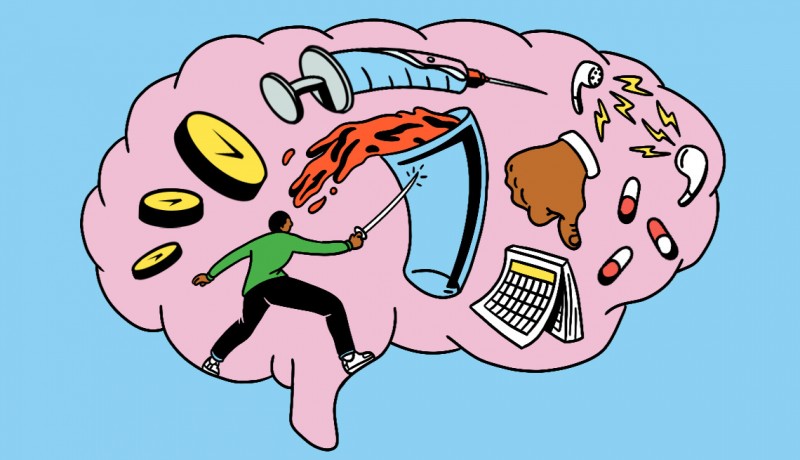
In the hustle and bustle of daily life, many of us inadvertently engage in habits that might be compromising the health and efficiency of our brains. Let's delve into some common practices that could be undermining your cognitive well-being.
Starting your day without a proper breakfast denies your brain the essential nutrients it needs to kickstart the day. The brain relies heavily on glucose, and a nutritious breakfast fuels cognitive functions, enhancing focus and memory.
Water is crucial for optimal brain function. Dehydration can impair short-term memory, focus, and decision-making abilities. Make sure to stay hydrated throughout the day to keep your brain functioning at its best.
While coffee can boost alertness, excessive caffeine intake can lead to dehydration and disrupt sleep patterns. Moderation is key to enjoying the benefits of coffee without adversely affecting your brain.
Physical inactivity not only impacts your body but also affects cognitive functions. Regular exercise improves blood flow to the brain, promotes neuroplasticity, and enhances overall cognitive performance.
Incorporating activities like yoga not only benefits physical health but also nurtures mental well-being. Mindful movement can reduce stress, improve focus, and positively impact brain function.
Constant exposure to screens and digital devices can lead to cognitive fatigue, eye strain, and decreased attention span. Set boundaries for screen time and engage in activities that allow your brain to unwind.
Blue light emitted by screens interferes with melatonin production, disrupting sleep patterns. Consider reducing screen time before bedtime to ensure a good night's sleep and support overall brain health.
Sleep is vital for memory consolidation and cognitive function. Prioritize a consistent sleep schedule and create a conducive sleep environment to ensure your brain gets the rest it deserves.
Short naps can enhance alertness, mood, and performance. Incorporate power naps into your routine to give your brain a quick recharge without disrupting nighttime sleep.
Neglecting mental health can lead to stress, anxiety, and depression, all of which can negatively impact cognitive function. Practice mindfulness, seek support when needed, and prioritize activities that bring joy.
Mindfulness meditation has been shown to reduce stress, improve focus, and enhance brain function. Dedicate a few minutes each day to mindfulness practices for a healthier, more resilient brain.
A diet lacking essential nutrients can hinder brain function. Include a variety of foods rich in antioxidants, vitamins, and omega-3 fatty acids to support cognitive health.
Incorporate foods like blueberries, fatty fish, and nuts into your diet to provide the nutrients your brain needs for optimal performance.
Contrary to popular belief, multitasking doesn't make us more efficient. Instead, it can lead to cognitive overload, decreased productivity, and an increase in errors. Focus on one task at a time for better cognitive outcomes.
Engage in single-tasking to boost concentration and improve the quality of your work. Your brain performs better when it can devote its full attention to a single activity.
Human connection is crucial for mental well-being. Social isolation can lead to feelings of loneliness and negatively impact cognitive health. Prioritize quality social interactions to nourish your brain.
Laughter has been shown to release endorphins, reduce stress, and improve mood. Surround yourself with positivity and humor to support your brain's well-being.
A lack of intellectual challenges can contribute to cognitive decline. Engage in activities that stimulate your brain, such as reading, puzzles, or learning new skills.
Continuous learning promotes neuroplasticity, keeping the brain agile and resilient. Challenge yourself with new experiences to support long-term cognitive health.
In the quest for a healthy and vibrant life, it's crucial not to overlook the well-being of our most vital organ—the brain. By recognizing and addressing these daily habits, we can actively contribute to maintaining and enhancing cognitive function. Adopting a mindful and brain-friendly lifestyle is an investment in a future of mental clarity and well-being.